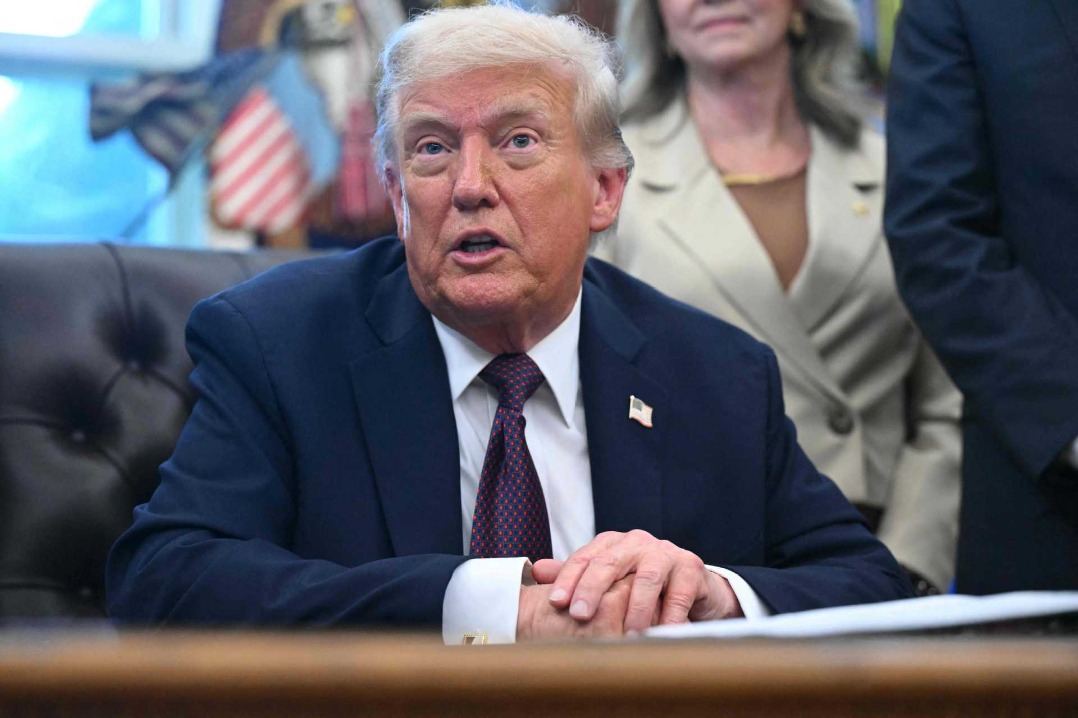Canada's digital tax sparks rift with US

Canada is facing renewed trade tensions with the United States after the latter abruptly cut off all trade negotiations, citing Ottawa's digital services tax as the reason.
US President Donald Trump announced on Friday that the US would immediately halt all trade talks with Canada, calling Ottawa's DST a "direct and blatant attack" on the country.
Julian Karaguesian, a professor of economics at McGill University in Montreal, said Trump's move is unfair.
"From a neutral perspective, the digital services tax, like a goods and services tax, is a domestic policy," said Karaguesian, who served as a special adviser in the international trade and finance branch at Canada's Department of Finance. "It treats domestic and foreign companies equally. It's a matter of tax policy, not trade policy."
The DST imposes a 3 percent levy on revenue earned from Canadian users by large tech firms. It applies to companies generating more than C$20 million ($14.6 million) annually from digital services in Canada.
The first payments of this tax are due on Monday. US companies such as Amazon and Google face an estimated $2 billion in bills under the new tax.
Karaguesian said both Trump and Canadian Prime Minister Mark Carney may be using the dispute as a negotiation tactic.
"There's no way that Carney and his team did not know that Trump was going to react to this," he said. "We could have pulled this off the table or said we're going to delay it. But here we were, letting it go into effect on Monday."
The move may have been intentional — to create a bargaining chip, he said, while acknowledging the power imbalance in the bilateral relationship.
"The Americans have more cards than we do. We are more dependent on them than they are on us, and they can continue to use their vast market size to squeeze concessions out of us."
Karaguesian also raised concerns about broader strategic pressures from Washington.
"It's becoming clear that for Trump, he only has vassal states and adversaries," he said. "They're not treating us like an ally."
Reducing reliance
Looking ahead, he argued that Canada must reduce its reliance on the US and pursue deeper trade ties with Asia.
"We need to trade more with China, India and the rest of Asia. That's where a good part of our economic future lies," he said.
Trump's abrupt termination of trade talks with Canada over the DST reflects a familiar and deliberate negotiating style, said Ron Stagg, a professor at Toronto Metropolitan University, who focuses on Canada-US relations.
"This is typical of Trump's bargaining style: take an extreme position, with no room for bargaining, and then see what your opponent will do," Stagg said.
"If Canada will not budge, such as delaying implementation or reducing the amount of the tax, Trump may increase the tariffs on Canadian goods."
He attributed Trump's stance to successful lobbying by US tech giants. "Obviously the big social media companies have been successful in convincing Trump that in taxing them Canada is hurting American business," he said.
The Canadian government, he said, now faces a dilemma.
"If it capitulates, it will be attacked by its political rivals in Canada, and by Canadian media companies, which have been greatly injured by the flight of advertisers to companies like Google and Meta," he said.
"If it stands up to Trump, Canada will face additional trade penalties."
gaoyang@chinadailyusa.com
?
































